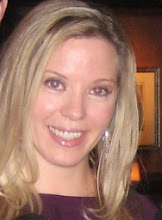
So, you want to get PR for your business or organization but are you prepared to be a “good interview”? It’s not enough to secure opportunities with media to drive business, you also have to be prepared to do a good interview; one that can lead to additional stories.
For me, there’s nothing better than securing a media interview opportunity for my clients, but the role they play in that story comes down to how they interview. I can only do so much to prepare them and keep the nerves down. Sure, you know your stuff inside and out but the second you put a microphone in their face they become nervous. Their thoughts may not be as clear and they sometimes fail to actually answer the question they’re being asked. That’s where preparation comes into play.
There are a number of things to consider before being interviewed, such as never wear white or busy patterns on TV and thoroughly understanding the topic in which you’re being interviewed (remember: journalists don’t write the same story but are looking for unique angles and they look to you to offer more specifically on that angle). What business owners often fail to do is prepare, and let me tell you that practice DOES make perfect.
Here are some tips to make practicing easy, everyday, successful and to build confidence:
* Know the audience you’re speaking to. A journalist is just a catalyst to deliver information to their readers, viewers or listeners. Understanding who they are will help you determine how to respond to the journalist’s query. Think industry vs consumer.
* Stay focused on the topic. Trying to get too many of your key messages in can increase the chances of your quotes being edited, or even edited out, by the journalist to keep focus on the story angle. The more you offer them, the bigger the presence you will have in the story.
* Why should the audience listen to you? What makes you a expert? How are you going to communicate your expertise?
* Craft your messages. Really think about the five specific things you want to be sure to communicate to the audience about the industry or your business and product. Write them out and refer to them during the interview, or memorize for broadcast.
* Learn to segue. Sure journalists are going to ask questions to lead you in the direction they want to go, but paying attention during the interview can provide opportunities to segue into the messages you really want to deliver.
* Be flexible. Be prepared for journalists to ask all kinds of questions. If you really are an expert then it should be easy for you to be flexible and react positively.
* Be helpful. Make sure that what you are offering is truly helpful information for the journalist and the audience.
* Speak in soundbites. Don’t manipulate the entire conversation by going on and on. Get to the point quick and think in soundbites (brief and informational statements). This also gives the interviewer the opportunity to ask you more questions. You don’t want to dominate the interview.
* Speak clearly, firmly and with confidence to establish credibility. There are two things that make for a potentially poor interview performance, 1. speaking fast and quietly or 2. not speaking enough. Prove you’re a good interview by speaking at a reasonable volume and pace. Finally, don’t rely on the journalist to pull the information out of you. They are interviewing you because you’ve provided them confidence in your capabilities to offer a good story. This is not the time to be shy.
* Practice, practice, practice. Use a mirror or ask someone you trust to run through a series of practice interviews with you. This ensures that you know exactly what you want to say, that you’re thinking and speaking in soundbites and delivering helpful information to audiences about the subject, your business and/or product.
Do all of this and you will build confidence for media interviews of all kinds. There’s nothing worse than letting your nerves get the best of you and walking away feeling as if you failed to communicate the messages you want to get out about your business.
A final tips: if you’re embarking on a PR campaign, go after smaller media first. Not only are you more likely to get an interview or mention but you can use it as practice to prepare for opportunities with larger even national media. Record your interview, if possible, and listen to it after to make a list of key learnings and things to work on to become even better.
For more tips on DIY PR visit Small Biz PR Made Easy and get weekly lessons that will make you an expert for your business!!











No comments:
Post a Comment